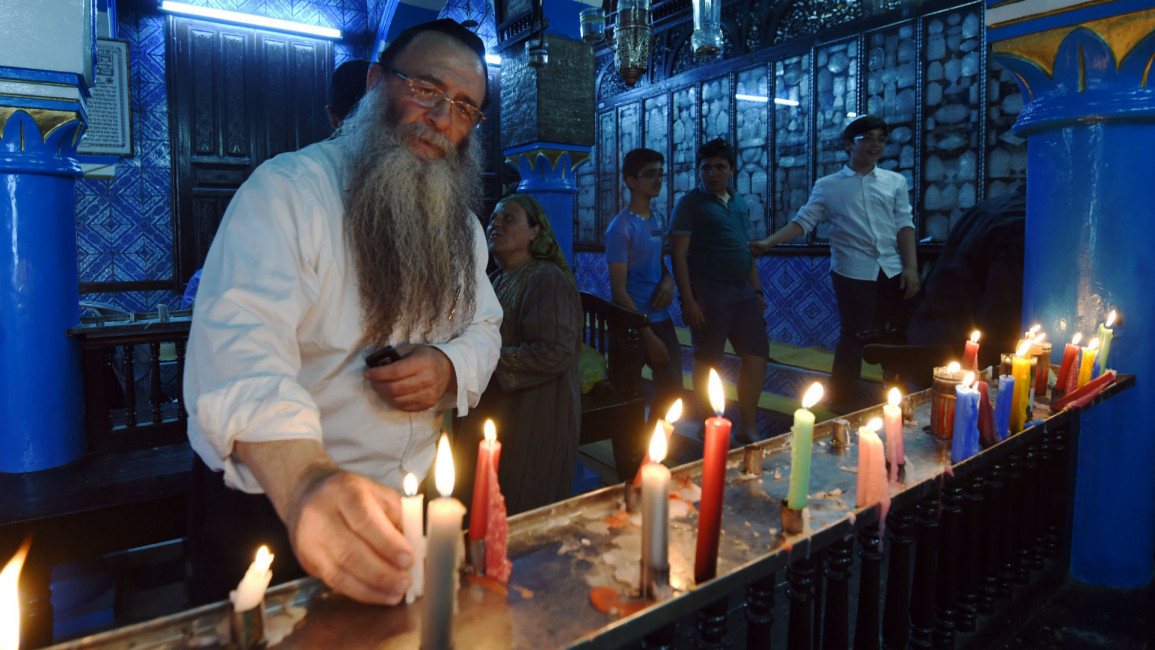
Cry wolf Netanyahu, and potential friends will desert you
The Israeli prime minister's recent attempts to dissuade members of the Jewish community from travelling to Tunisia's annual El Ghriba festival is likely to deepen the rift between the two countries.
Before the annual Jewish festival held from 6-7 May on the island of Djerba, Binyamin Netanyahu claimed to have "concrete" evidence of a terror threat against Jews and Israelis planning to attend the event.
A fearmongering release from Netanyahu's office added: "Information indicates there are plans for terrorist attacks against Israelis or Jews in Tunisia."
The comments sparked a quick response from Tunisian government officials, keen to reassure tourists of the country's safety following the 18 March Bardo Museum attacks.
A senior official at the Tunisian interior ministry, who asked not to be named, told AFP: "We have nothing on that. There are no threats. All measures have been taken to ensure the success of the pilgrimage to El Ghriba."
Najem Gharsalli, Tunisia's interior minister, insisted Netanyahu's remarks were "not innocent", before accusing him of trying to undermine Tunisia's image, and of questioning its security and military skills.
Gharsalli reaffirmed the ability of the state and its institutions to protect all Tunisian citizens and visitors to the country, whatever their religion.
"They are here and a security plan is in place.
"Tunisia is a safe country and Djerba is a safe city. Visitors from all the world over are welcome,” he added.
Netanyahu's office has since fallen silent about the supposed threats, as festival organisers estimated about 2,000 Jews from across the world took part in this year's festival.
Many, however, will undoubtedly question the motives behind Nethanyahu's latest move, especially given the diplomatic row which ensued between the two countries after 20 Israeli citizens were denied entry to Tunisia in the run-up to last year's event.
Tunisian officials claim the pilgrims were refused entry because they failed to apply for the correct visas in advance. However, the move hit a sour note with Jewish groups who accused Tunisian officials of discrimination.
Meanwhile both countries have been at loggerheads as successive governments have refused to play the role of "peacemaker" between the zionist entity and its neighbours, a position graciously accepted by the governments of both Habib Bourghiba and Zine El Abidine Ben Ali.
Ben Ali in particular enjoyed a cosy relationship with the Israeli government as he opened a de facto embassy on Israeli soil in 1992, despite officially refusing to recognise the state of Israel. Tunisian authorites eventually closed the "diplomatic interest section" in 1996 as a gesture of support for the Palestinian intifada.
However, away from the public eye the Ben Ali regime continued to talk to Israel until the Tunisian uprising. Israeli foreign ministry spokesperson Yigal Palmor is recorded as saying that Israel had "good working relations" with Tunisian diplomats in Ramallah before the 2011 revolution.
Netanyahu himself lamented the fall of the former dictator when he claimed the 2011 revolution displayed "an instability prevalent in the entire Middle East".
A hard line was taken against Israel when the post-revolution moderate Islamist party Ennahdha ruled the Tunisian roost. At the time ministers proposed adopting anti-zionist messages in the country's constitution. However, the references never made the final draft when the document was ratified in January 2014.
The news that the country's Ennahdha-backed former president, Moncef Marzouki, is to take part in an aid flotilla bound for Gaza later this year leaves little doubt about the party's views of the Israeli regime.
Many thought the current Tunisian president, Beji Caid Essebsi, would adopt the traits of his former paymaster in re-establishing a quietly cosy relationship with Israel.
However, four months into Essebsi's term and the two could not be further apart.
What remains to be seen, is whether the Tunisian president will continue along the path of resistance, or choose to follow the lead of his former paymaster in extending an olive branch to the Israeli government.




